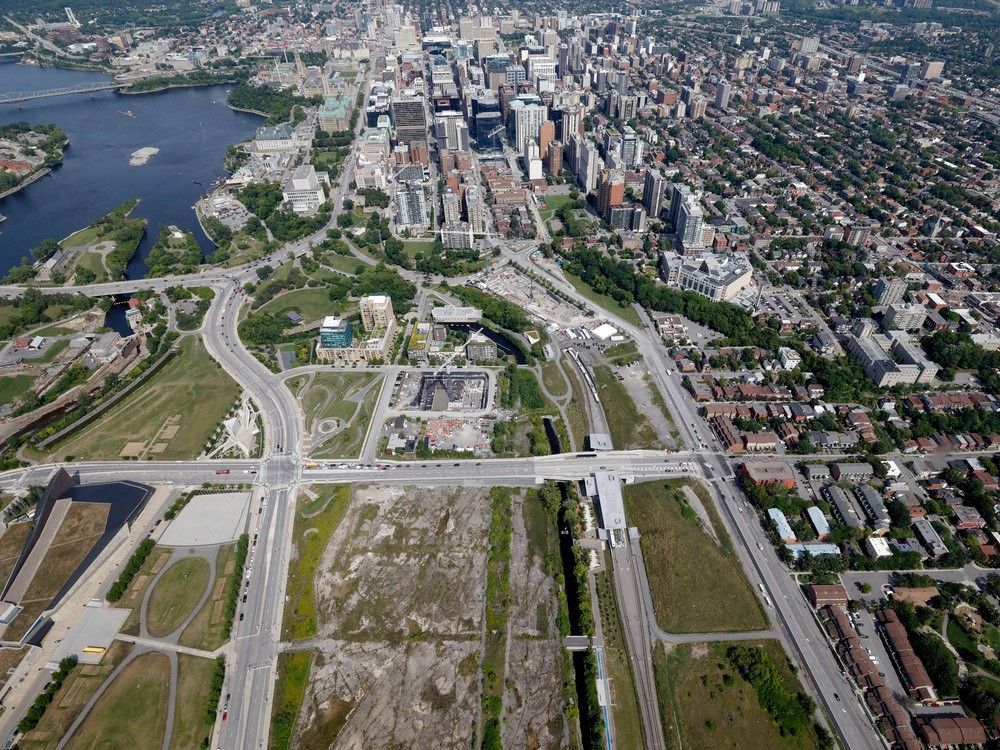Author of the article:
Associated Press
Dyepkazah Shibayan, Monika Pronczuk And Haruna Umar
Published Sep 20, 2024 • Last updated 1 minute ago • 4 minute read

ABUJA, Nigeria — Houses swept away to the very last brick. Inmates frantically fleeing the city’s main prison as its walls got washed away by water rising from an overflowing dam. Corpses of crocodiles and snakes floating among human bodies on what used to be main streets.
Advertisement 2
THIS CONTENT IS RESERVED FOR SUBSCRIBERS ONLY
Subscribe now to read the latest news in your city and across Canada.
- Unlimited online access to articles from across Canada with one account.
- Get exclusive access to the Toronto Sun ePaper, an electronic replica of the print edition that you can share, download and comment on.
- Enjoy insights and behind-the-scenes analysis from our award-winning journalists.
- Support local journalists and the next generation of journalists.
- Daily puzzles including the New York Times Crossword.
SUBSCRIBE TO UNLOCK MORE ARTICLES
Subscribe now to read the latest news in your city and across Canada.
- Unlimited online access to articles from across Canada with one account.
- Get exclusive access to the Toronto Sun ePaper, an electronic replica of the print edition that you can share, download and comment on.
- Enjoy insights and behind-the-scenes analysis from our award-winning journalists.
- Support local journalists and the next generation of journalists.
- Daily puzzles including the New York Times Crossword.
REGISTER / SIGN IN TO UNLOCK MORE ARTICLES
Create an account or sign in to continue with your reading experience.
- Access articles from across Canada with one account.
- Share your thoughts and join the conversation in the comments.
- Enjoy additional articles per month.
- Get email updates from your favourite authors.
Article content
As torrential rains across Central and West Africa have unleashed the most catastrophic floods in decades, residents of Maiduguri, the capital of the fragile Nigerian state of Borno — which has been at the centre of an Islamic extremists’ insurgency — said they have seen it all.
The floods, which have killed more than 1,000 people and displaced hundreds of thousands across the region this year, have worsened existing humanitarian crises in the countries which have been impacted the most: Chad, Nigeria, Mali and Niger. Over four million people have been affected by flooding so far this year in West Africa, a threefold increase from last year, according to the UN.
With rescue operations still underway, it is impossible to give an accurate count of lives lost in the water. So far, at least 230 were reported dead in Nigeria, 265 in Niger, 487 in Chad and 55 in Mali, which has seen the most catastrophic flooding since the 1960s.
Advertisement 3
Article content
While Africa is responsible for a small fraction of global greenhouse gas emissions, but it is among the regions most vulnerable to extreme weather events, the World Meteorological Organization said earlier this month. In sub-Saharan Africa, the cost of adapting to extreme weather events is estimated between $30-50 billion annually over the next decade, the report said. It warned that up to 118 million Africans could be impacted by extreme weather by 2030.
Maiduguri, the capital of Borno state, has been under significant strain. Over the last decade, Borno has been hit by a constant string of attacks from Boko Haram militants, who want to install an Islamic state in Nigeria and have killed more than 35,000 people in the last decade.
By signing up you consent to receive the above newsletter from Postmedia Network Inc.
Article content
Advertisement 4
Article content
Saleh Bukar, a 28-year-old from Maiduguri, said he was woken up last week around midnight by his neighbours.
“Water is flooding everywhere!” he recalled their frantic screams in a phone interview. “They were shouting: ‘Everybody come out, everybody come out!” Older people and people with disabilities did not know what was going on, he said, and some were left behind. Those who did not wake up on time drowned right away.
Local authorities are overwhelmed by the scale of the disaster: over 600,000 people in Borno state have been displaced, while at least 100 were killed and 58 injured, according to the UN.
Last week, floods killed about 80% of the animals at the Borno State Museum Park and an unspecified number of reptiles escaped. The city’s main prison was so damaged that hundreds of inmates escaped. The waters knocked down the walls of the local police station and some of the government’s offices.
Advertisement 5
Article content
Rescue operations continue ten days later, with some parts of the city returning to normal as waters recede.
Survivors recounted chilling scenes of bodies in the floodwaters.
Aishatu Ba’agana, a mother of three, had to abandon her recently born baby as water surging over her house overwhelmed her. “I yelled for my family to help me get my child, but I don’t know if they were able to. I haven’t seen any of them since,” she said, crying at the camp where rescue workers brought her.
The flood also destroyed crucial infrastructure, including two major dikes of a dam along Lake Alau. When the dam failed, 540 billion liters of water flooded the city. Key bridges connecting Maiduguri collapsed, turning the city into a temporary river.
Advertisement 6
Article content
Governor Babagana Zulum urgently appealed for international assistance. “Our resources are stretched to the limit, and we cannot do this alone,” he said.
The World Food Program has set up kitchens providing food to the displaced in Maiduguri as well as emergency food and cash assistance to people in the most hard-hit areas. USAID said Wednesday it has provided more than $3 million in humanitarian assistance to West and Central Africa, including $1 million provided in the immediate aftermath of the floods.
But many say they were left to fend for themselves.
Floods in mostly arid Niger have impacted over 841,000 people, killing hundreds and displacing more than 400,000.
Harira Adamou, a 50-year-old single mother of six, is one of them. She said the floods destroyed her mud hut in the northern city of Agadez.
Advertisement 7
Article content
“The rooms are destroyed; the walls fell down,” she said. “It’s a big risk to live in a mud hut but we don’t have the means to build concrete ones.”
Adamou, who is unemployed and lost her husband four years ago, said she has not received any support from the state and has not had the opportunity — or the means — to relocate. She and her children are living in a temporary shelter next to their shattered hut, and fret that the torrential rains might return.
“I understood there was a change in the weather,” she said. “I have never seen a big rain like this year here in Agadez.”
In Maiduguri, 15% of the city remains underwater, according to local authorities. As forecasts predicted more rains across the region, Nigerian authorities warned earlier this week that more floods are expected.
Advertisement 8
Article content
Bukar said he kept going back to see whether the water that swallowed his home had receded, but that has not happened. He said he has not received any aid from authorities except for some food items handed out at the local school, where he is sheltering with 5,000 others.
He is trying to stay sane by helping others. Along with his friend, he helped recover 10 bodies and rescued 25 people, rowing down the streets in a canoe. He said he’s also helping out cooking meals for those that are sheltering with him.
“I am volunteering to help, but I am also a victim,” he said. “Our people need us. They need help.”
— Pronczuk reported from Dakar, Senegal. Umar reported from Maiduguri.
Article content
.png)
 2 hours ago
6
2 hours ago
6

































 Bengali (BD) ·
Bengali (BD) ·  English (US) ·
English (US) ·